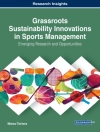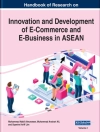Management and Langugage explores and develops the image of the manager as one who is aware of, and attends to, the way in which language is used in everyday managerial activity. Much managerial activity is achieved through language and a vital task for any manager is to generate with others an intelligible account of the various feelings that surround the contested issues in the organization.
Such a process involves reading a context from different perspectives, constructing new meanings, framing the complexities and dilemmas faced into new ′landscapes′ of possible future actions, and creating a persuasive argument for those landscapes amongst those who must work in them. For such a process to be conducted successfully a range of abilities and skills become relevant such as storytelling, metaphors and developing arguments.
Management and Language is a timely publication with contributions from eminent academics in the field. This book will be engaging reading to academics and management teachers interested in critical management theory and those generally open to new and different approaches to management. It will also be of relevance to practising managers who wish to have a deeper understanding of how they use language in their everyday work.
สารบัญ
Introduction – David J Holman and Richard Thorpe
Management and Language: The Manager as a Practical Author
PART ONE: SETTING THE SCENE
Managers as Practical Authors – John Shotter and Ann L Cunliffe
Everyday Conversations for Action
PART TWO: DEVELOPING AND UNDERSTANDING THE STORY
Using Narrative and Telling Stories – David M Boje
Full of Characters – David J Holman, Jeff Gold and Richard Thorpe
Identity and Talk in Practical Authoring
Visual Media and the Construction of Meaning – Richard Thorpe and Joep Cornelisson
PART THREE: DEVELOPING THE AUTHOR′S POSITION
The Leader as a Practical Narrator – Francois Cooren and Gail T Fairhust
Leadership as the Art of Translating
The Logic of Message Design in Organisational Argument – Shirley Willihnganz, Joy L Hart and Charles A Willard
Authoring as a Collaborative Process through Communication – Stanley Deetz
PART FOUR: REWRITING THE SCRIPT, RESCRIPTING THE AUTHOR
Conversations and the Authoring of Change – Jeffrey D Ford and Laurie W Ford
All in a Knot of One Anothers′ Labours – Mike Pedler
Action Learning as Joint Practical Authoring
A Critical Conversation Between Author Managers and Management Authors – Dorothy Lander and Craig Prichard
เกี่ยวกับผู้แต่ง
Richard Thorpe is an Emeritus Professor at the University of Leeds where he was latterly Professor of Management Development and Pro Dean for Research at Leeds University Business School. His early industrial experience informed the way his ethos has developed. Common themes are a strong commitment to process methodologies and a focus on action in all its forms; an interest in and commitment to the development of doctoral students and the development of capacity within the sector; and a commitment to collaborative working on projects of mutual interest. Following a number of years in industry, he joined Strathclyde University as a researcher studying incentive payment schemes. This led to collaboration on Payment Schemes and Productivity (Macmillan, 1986). In 1980 he joined Glasgow University where he widened his research interests to include small firm growth and development as well as making regular contributions to the Scottish Business School’s doctoral programme. In 1983 he attended the International Teachers’ Programme in Sweden where he met Mark and embarked on a Ph D under Mark’s supervision. Collaboration continued through the 1990s with the ESRC Teaching Fellowship Scheme. In 1996 he was instrumental in establishing the Graduate Business School at Manchester Metropolitan University and in 2003 joined the ESRC Training and Development Board. There, he was involved in establishing the training guidelines for both doctorate and professional doctorate provision and more recently in initiatives to address capacity building in management and business. In 2003 he contributed to the ESRC’s Evolution of Business Knowledge programme. His research interests have included: performance, remuneration and entrepreneurship, management learning and development and leadership, and he has published (with others) a number of books including: Remuneration Systems (Financial Times/Prentice Hall, 2000); Management and Language: The Manager as Practical Author (Sage, 2003); The SAGE Dictionary of Qualitative Management Research (Sage, 2008); Performance Management: Multidisciplinary Perspectives (Palgrave, 2008); Gower Handbook of Leadership and Management Development (Gower, 2010) ) and more recently, two research methods books, Management Research, in the Sage ‘A very Short, Fairly Interesting and reasonably Cheap Book About’ series and A Guide to Professional Doctorates in Business and Management (Sage, 2015). He was a past Present of the British Academy of Management in 2007, Dean of Fellows in 2012 and in 2009-2015 he was Chair of the Society for the Advancement of Management Studies. In this latter role he initiated the ESRC/SAMS/UKCES Management and Business Fellowship Scheme.












